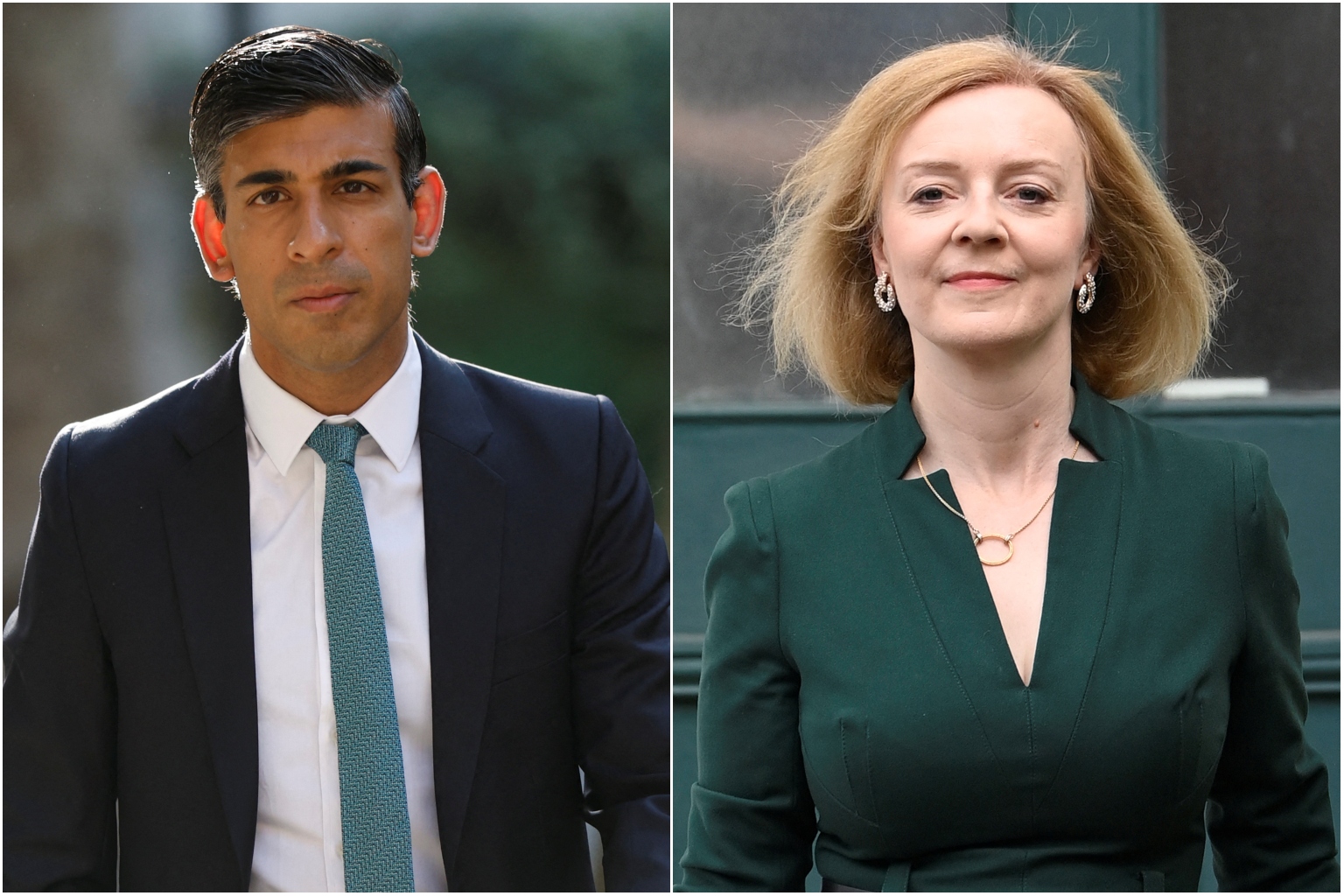Rishi Sunak and Liz Truss are final 2 candidates in race to become British PM
Sign up now: Get ST's newsletters delivered to your inbox

Former finance minister Rishi Sunak (left) and Foreign Secretary Liz Truss.
PHOTOS: REUTERS
LONDON (AFP, REUTERS, BLOOMBERG) - Former British finance minister Rishi Sunak and Foreign Secretary Liz Truss on Wednesday (July 20) made it through to the final stage of the leadership contest to replace Prime Minister Boris Johnson.
Former defence secretary Penny Mordaunt was eliminated after securing 105 votes, the lowest among the three contenders.
Mr Sunak secured 137 votes, while Ms Truss had 113.
The race now moves to Conservative Party members who will decide the new leader and prime minister.
The result will be announced on Sept 5.
Wednesday's vote means Britain will get either its first British-Asian prime minister or the third female leader in its history.
A Sunak-Truss duel was widely predicted at the start of the contest, with both considered Conservative heavyweights having held two of the most senior positions in Mr Johnson’s administration. They supported him through months of turmoil and a police probe into illegal pandemic parties in Downing Street.
But the outgoing prime minister’s shadow will now hang over them in very different ways. While Ms Truss stayed outwardly loyal, Mr Sunak’s dramatic decision to quit on July 5 – moments after Health Secretary Sajid Javid had done so – set events in motion that would ultimately bring Mr Johnson down.
Mr Johnson's shadow
Mr Sunak has tried to distance himself from his old boss, repeatedly referencing “disagreements”. The strategy is to appeal to Tories fed up with the scandal surrounding Mr Johnson – though Mr Sunak is undermined by the fact that like the prime minister, he was fined over “partygate”.
Meanwhile Ms Truss has faced the opposite challenge, having to justify her decision to stay on in Mr Johnson’s caretaker government after dozens of ministers resigned. She even sat next to him in the House of Commons on Monday as he talked up his record in office.
Ms Truss has defended her support, insisting she was bound by the cabinet’s “collective responsibility” when asked about Mr Johnson’s controversies. She will be hoping there are enough Tory members who believe the prime minister has been ill-treated by the party after he won an emphatic 80-strong majority in Parliament at the last general election in 2019, the biggest win for the Conservatives since 1987.
Mr Johnson has not publicly endorsed any candidate but close allies, including Culture Secretary Nadine Dorries and Brexit Minister Jacob Rees-Mogg, back Ms Truss. The latest YouGov poll of Tory members also point to a Truss victory.
Fickle members
Still, members’ opinions are volatile and both Mr Sunak and Ms Truss have about six weeks to make their case. A key question will be whether the tone of the contest will now mellow, after a bruising phase in Westminster that saw candidates turn on each other in with a series of smears and attacks.
In a televised debate, Mr Sunak took aim at Ms Truss over her past membership of the opposition Liberal Democrats and support for remaining in the European Union. “I was just wondering which one you regretted most?” he asked.

Mr Sunak, who campaigned for the UK to leave the EU, is eager to burnish his pro-Brexit credentials. Yet it is Ms Truss who is now seen by many in the party as being more evangelical, and is credited with persuading Mr Johnson to try to rip up the divorce deal with the bloc.
She has also managed to reinvent herself from being president of Oxford University’s Liberal Democrat society to being a true blue Tory, attempting to channel Margaret Thatcher – apparently even far as the way she dressed.
Economic strife
Brexit, though, could remain a sub-plot. The UK faces an economic slowdown that business leaders are concerned may turn into a recession, with inflation stuck at the highest level in four decades and set to rise past 11 per cent in October.
Finding a credible response to a burgeoning cost-of-living crisis will be the first priority for Britain’s new prime minister and will likely shape how the contest plays out. And Mr Sunak and Ms Truss have very different approaches.
Finding a credible response to a burgeoning cost-of-living crisis will be the first priority for Britain’s new prime minister and will likely shape how the contest plays out. And Mr Sunak and Ms Truss have very different approaches.



